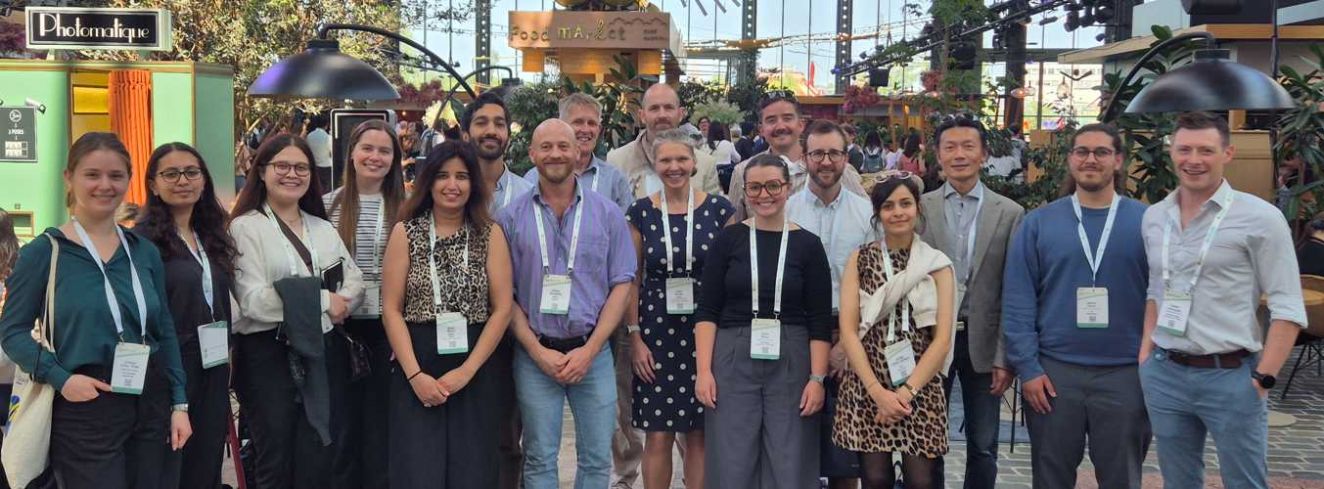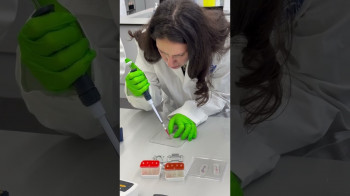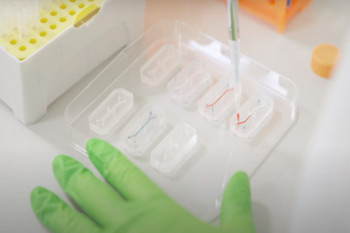A World-Leading Centre for Predictive in vitro Model Research, Training and Translation
Research with the Centre incorporates a wide range of model systems including 2D and 3D cell culture models, organoids, microphysiological systems, organ-on-a-chip technology, Non Animal Methods (NAMs), and other types of in vitro model.
With approximately 100 academic staff across the Faculty of Science and Engineering and the Faculty of Medicine and Dentistry, Queen Mary's Centre for Predictive in vitro Models is leading development and use of these complex in vitro models in partnership an extensive list of partners and industry affiliates.
Queen Mary provide leadership in this field hosting the annual UK symposium and engaging with Government, policy makers, funders, industry and other stake holders to support development and adoption of this transformative technology.
Events
 Wed 25 Feb 2026 Wed 25 Feb 202615:00 - 16:00 | Seminar: CPM Seminar Series - Dr Norah Fogarty (KCL) |
 Wed 25 Mar 2026 Wed 25 Mar 202615:00 - 16:00 | CPM Seminar Series - Dr Francesco Tedesco |
 Wed 22 Apr 2026 Wed 22 Apr 202615:00 - 16:00 | Seminar: CPM Seminar Series - Dr Mattea Finelli (University of Nottingham) |
 Wed 20 May 2026 Wed 20 May 202615:00 - 16:00 | CPM Seminar Series - Dr Bin Zhang (Brunel University) |
Recent Publications
- Multi-omics qualification of an organ-on-a-chip model of osteolytic bone metastasis
Castro NM, Nolan J, Maniati E, Agrawal A, Gauthier V, Pearce OMT, Verbruggen SW, Knight MM
Acta Biomaterialia, Elsevier vol. 209, 362-374.
13-11-2025 - Biomimetic organo-hydrogels reveal the adipose tissue local mechanical anisotropy regulates ovarian cancer invasion
Gonzalez-Molina J, Nabili P, Marciano D, Abdelnabi S, Gultekin O, Rasul MF, Zhang Y, Nadal C et al.
Nature Communications, Springer Nature vol. 16 (1)
29-09-2025 - Biomimetic artificial bone marrow niches for the scale up of hematopoietic stem and progenitor cells
Bosch-Fortea M, Marciano D, Gautrot JE
Biomaterials, Elsevier vol. 325
08-08-2025
Recent Grants
- COaCT - Development of a vascularised muscle-tendon inflammation-on-a-chip model
Hazel Screen and Martin Knight
£166,623 UCB Pharma SPRLGrant Summary
01-10-2025 - 30-09-2029 - Role of the mechano-lipid matabolic signalling axis in cardiovascular disease
Thomas Iskratsch, Nicolae Radu Zabet and Qingzhong Xiao
£919,939 British Heart FoundationGrant Summary
01-10-2025 - 30-09-2030 - COaCT - An organ-chip model of inflammation in the canine cartilage-synovium interface
Stefaan Verbruggen and Martin Knight
£159,868 Zoetis LLCGrant Summary
29-09-2025 - 28-09-2029









